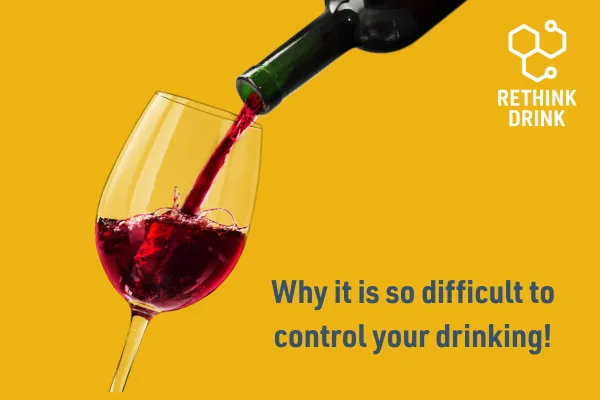
Why Is It So Difficult to Stop Drinking? The Science Behind Endorphins and Incomplete Treatment
Key Takeaways
Quitting alcohol is far more complex than willpower alone.
The brain becomes addicted to endorphin release triggered by alcohol.
Incomplete treatment and outdated methods often sabotage recovery.
The Sinclair Method offers a science-backed approach using Naltrexone to retrain the brain.
Personalised coaching and support dramatically increase success rates.
Understanding the Real Struggle of Quitting Alcohol
Many of us assume that stopping drinking is simply about self-control. But if you've ever tried to cut down—or stop entirely—you'll know it's not that simple. It often feels like you're fighting your own brain. And in many ways, that’s exactly what’s happening.
Despite sincere efforts, countless people fail to quit drinking because they are not being treated properly. Outdated abstinence-only models ignore what modern neuroscience is uncovering: alcohol hijacks your brain’s reward system by triggering an addictive endorphin release. Once this process takes root, sheer willpower rarely stands a chance.
How Alcohol Rewires the Brain
When we drink, alcohol stimulates the release of endorphins—our brain's natural feel-good chemicals. These chemicals bind to opioid receptors in the brain, creating a euphoric response. For some individuals, this response is especially powerful and reinforcing.
Key effects of alcohol on the brain:
Reward circuitry is flooded with endorphins, reinforcing the urge to repeat drinking.
Memory systems start associating alcohol with pleasure, making cravings more persistent.
Impulse control is gradually weakened, especially with regular heavy use.
Emotional regulation becomes dependent on alcohol, masking underlying issues.
Over time, the brain learns to crave alcohol as a shortcut to pleasure, relaxation, or emotional relief. This isn’t a character flaw—it’s a chemically conditioned response.
The Problem with Incomplete Treatment
One of the biggest reasons people fail to recover from Alcohol Use Disorder (AUD) is because they’re not receiving evidence-based treatment. Conventional approaches often ignore how deeply the brain has been rewired.
If treatment doesn't directly address the endorphin addiction caused by alcohol, it’s likely to fail. White-knuckling sobriety without addressing the underlying brain chemistry is like trying to heal a broken leg without a cast.
The Sinclair Method: Retrain, Don’t Restrain
Unlike traditional sobriety models, the Sinclair Method (TSM) works by deconditioning the brain’s response to alcohol. Using a prescription medication called Naltrexone, taken before drinking, it blocks the endorphin high. Over time, the brain begins to dissociate alcohol from pleasure.
This process is called Pharmacological Extinction—and it works.
Benefits of the Sinclair Method:
Allows for a gradual reduction in alcohol consumption
Removes the pressure of instant abstinence
Reprogrammes the brain’s reward system over time
Backed by peer-reviewed clinical studies
Success rates as high as 78%
You can explore more about the effectiveness of the Sinclair Method in the UK here.
Why Coaching Makes All the Difference
The Sinclair Method is incredibly effective—but like any treatment, it’s most successful when supported. At Rethink Drink, we specialise in helping people apply TSM with confidence, providing structured coaching, support, and accountability throughout your journey.
Our support includes:
One-on-one coaching sessions
Clear guidance on how to use Naltrexone correctly
Education about endorphin-based addiction
Strategies for navigating triggers and habits
Emotional and motivational support
Don't go it alone—book a free screening call today to see if you're a good fit for the Sinclair Method.
Breaking the Cycle: A Hopeful Future
Stopping drinking isn’t a matter of shame or failure—it’s a matter of science. If your brain has been conditioned to crave the endorphin hit from alcohol, it’s no surprise that traditional methods haven’t worked. But with the right treatment—one that addresses the root cause—you can break the cycle.
The Sinclair Method is not just another programme. It’s a revolution in recovery. And with the right guidance, it can change your life.


